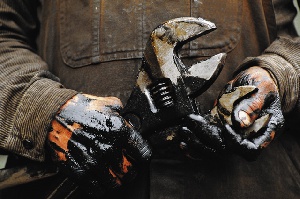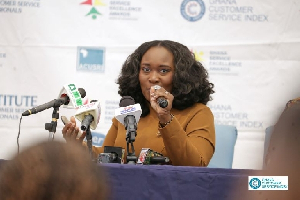Busua, Aug. 11, GNA – The Coalition of NGOs in Water and Sanitation (CONIWAS) has called for an urgent debate towards finding solutions to the likely negative impacts of the activities of the oil industry.
Mr. Farouk Briamah, Vice Chairman of the CONIWAS, who made the call at a Water and Sanitation Conference, at Busua, in the Ahanta West District of the Western Region said strategic measures must be put in place to deal with oil spillage when they happen.
“What is our strategy for dealing with spill and backflow of oil into river bodies bordering the shore,” he questioned?
He, therefore, called for efforts to ensure that surrounding communities did not suffer water and insanitary problems.
The CONIWAS and its partners are holding the three-day Mole XX11 Conference for stakeholders across the country.
“It is on the theme: “Towards Decentralized Water and Sanitation Hygiene Services (WASH) Delivery: Challenges and Lessons.”
The conference is discussing Oil and Gas and its implications in the WASH Sector, among other topics.
The CONIWAS Vice Chairman expressed concern that since the oil find the national focus had been solely on revenue generation but not on the possible environmental impact of the oil industry on the communities.
Mr Briamah noted that the population of six frontline communities of Cape Three Points, the coastline of the oil find, had increased and this had put much pressure on water and sanitation services there.
A solution, he said, must be found so that the people do not suffer unduly, he said.
On Mining, he said, the nation must take a second look at the activities of the big mining companies, which engaged in surface mining endangering and polluting the environment.
“We must show interest in how they manage their waste and where they dump them in order to protect the health of the communities,” he said.
Opening the conference, Madam Emelia Arthur, Deputy Western Regional Minister, described as ‘unpardonable and unforgiveable’ the poor sanitation in the communities and called for constant cleaning exercises to protect the health of the people.
He expressed regret that though sanitation issues had been given much publicity not much had been done, and therefore, called for inter agency and stakeholders approach to address the situation before it escalates.
The Deputy Western Regional Minister stressed the need for households to have sanitary facilities to prevent indiscriminate defecation, which breeds epidemics.
General News of Thursday, 11 August 2011
Source: GNA













